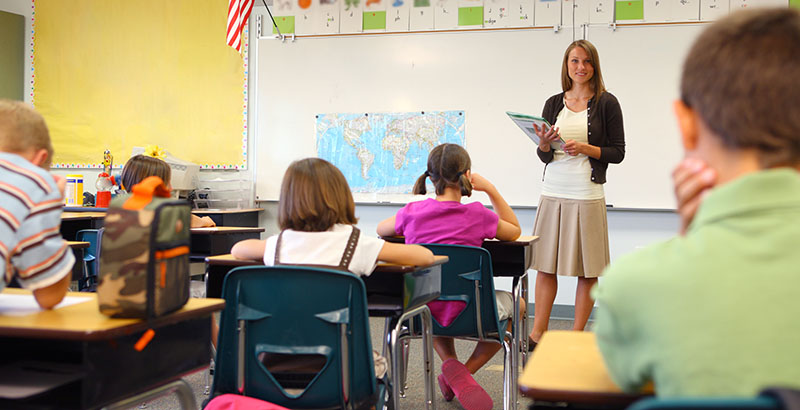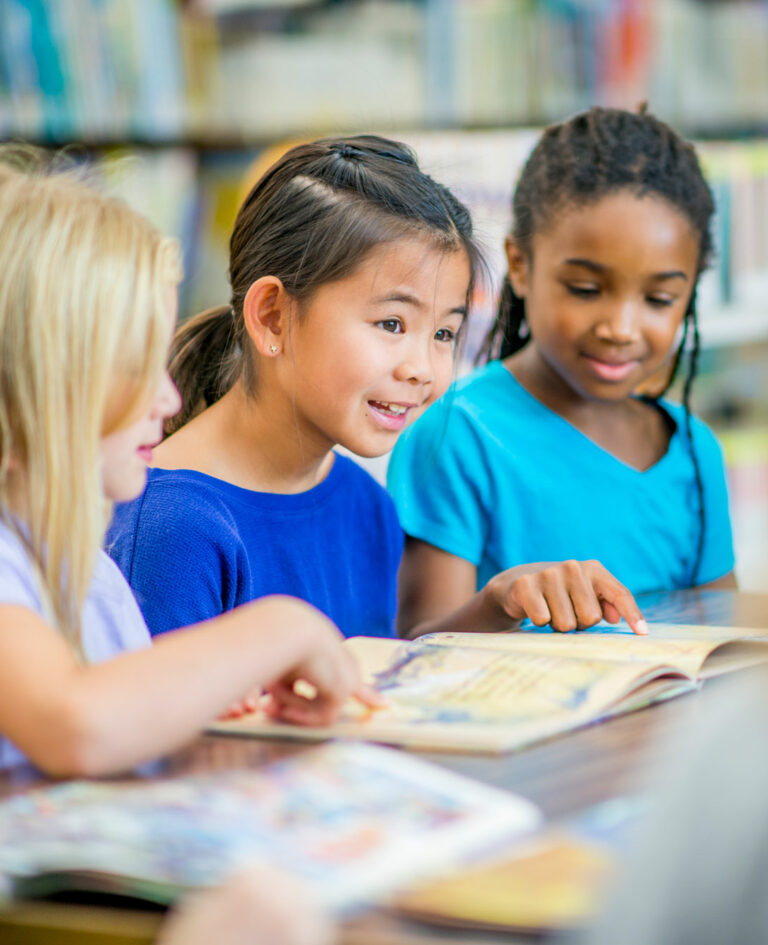Why Parents Choose Private School for a Well-Rounded Learning Experience
Wiki Article
Aspects to Think About in Finding Independent School: Understanding What Each Establishment Has to Offer for Your Kid's Growth
Choosing a private institution for a youngster entails cautious consideration of several elements. Moms and dads need to analyze the scholastic curriculum and training viewpoints of different organizations. They need to also explore after-school activities that can enrich their kid's experience. Additionally, understanding the college's society and worths is crucial for alignment with household beliefs. As economic ramifications play a substantial role, it is vital to consider tuition expenses against readily available scholarships. Exactly how do these elements form a youngster's growth path?Academic Curriculum and Mentor Viewpoint
When choosing a personal school, comprehending the scholastic educational program and training approach is vital, as these components considerably affect a child's educational experience. Parents need to examine the institution's approach to training and the subjects provided, as this can vary substantially amongst organizations. Some institutions may embrace a standard educational program concentrated on core topics, while others might stress project-based knowing or interdisciplinary studies.Additionally, the training approach can shape classroom dynamics and trainee interaction. Schools that focus on a student-centered method commonly foster essential reasoning and partnership, while those with a more structured atmosphere may focus on self-control and fundamental abilities.
Extracurricular Tasks and Enrichment Programs

Significance of Diverse Activities
While scholastic quality is frequently prioritized in personal schools, the importance of diverse tasks, including extracurricular activities and enrichment programs, can not be overemphasized. These activities play a vital function in a youngster's holistic development, supplying opportunities for imagination, important reasoning, and synergy. Participating in various searches permits trainees to discover their rate of interests, find new interests, and create essential life abilities, such as time administration and self-discipline. Additionally, diverse tasks can foster a sense of belonging and area, improving the overall school experience. By taking part in clubs, sports, and artistic ventures, students not only improve their education however likewise produce memorable experiences that add to their individual growth. Subsequently, varied activities are indispensable to fostering well-rounded people.Influence On Social Abilities
How do after-school activities and enrichment programs influence a child's social skills? These programs provide essential chances for youngsters to interact with peers beyond the standard classroom setting. Involving in sporting activities, arts, or clubs promotes synergy, communication, and dispute resolution. Kids discover to navigate varied social atmospheres, boosting their capability to create relationships and establish compassion. In addition, getting involved in various activities encourages confidence, as children take on brand-new obstacles and obligations. As they work together on jobs or compete in groups, they also obtain valuable experience in leadership and collaboration. Ultimately, a rich variety of extracurricular offerings contributes significantly to a child's social development, preparing them for future social communications in both individual and scholastic contexts.School Culture and Worths
Understanding the college society and worths is crucial for parents evaluating private education choices, as these aspects considerably influence a kid's general experience. Each institution embodies one-of-a-kind viewpoints, practices, and social standards that shape pupils' day-to-days live. A college that stresses inclusivity may cultivate a helpful environment, encouraging kids to create compassion and respect for varied backgrounds. Conversely, organizations that focus on academic quality might create an affordable ambience, motivating trainees to intend for high accomplishment.Additionally, the placement of a college's worths with a family's ideas can improve a youngster's sense of belonging, enhancing positive actions and perspectives. Moms and dads should check out the institution's mission declaration, review its corrective plans, and observe student interactions to determine the fundamental culture. Inevitably, a school's society and worths substantially affect not only academic success yet additionally personal development, outfitting kids with crucial life skills for their future.
Course Size and Student-Teacher Ratio
Course size and student-teacher proportion play a vital role in the academic experience supplied by independent schools. Smaller sized classes commonly lead to enhanced more tips here private interest, fostering much better trainee involvement and understanding. Research study shows that these elements can greatly influence discovering end results, making them crucial factors to consider for moms and dads.Benefits of Smaller Classes
Smaller sized course dimensions greatly boost the academic experience by promoting much more individualized interest from instructors. In these environments, educators can tailor their direction to fulfill specific student requirements, enabling a deeper understanding of the product. With less students, educators can much more quickly determine those that may be struggling and supply immediate assistance. This close interaction can cultivate more powerful relationships in between trainees and instructors, creating a helpful environment helpful to discovering. Furthermore, smaller sized classes often advertise greater involvement, as trainees might feel a lot more comfy voicing their inquiries and ideas. This vibrant urges collaborative learning and boosts total classroom engagement. Inevitably, the benefits of smaller sized classes contribute remarkably to a well-shaped educational experience that prioritizes trainee growth and growth.Influence on Understanding Outcomes
The advantages of smaller courses expand beyond individualized attention, considerably affecting learning outcomes. Research study continually shows that a reduced student-teacher proportion promotes boosted involvement, permitting teachers to customize guideline to private needs. This setting urges energetic participation, important thinking, and much deeper understanding of the product. In smaller sized settings, instructors can better recognize and address finding out spaces, resulting in boosted academic performance. Grade School Peoria. Additionally, pupils typically feel much more comfortable sharing their thoughts and asking concerns, which can further improve the knowing experience. Conversely, larger course dimensions may limit communication and feedback, possibly preventing pupil growth. As an outcome, when assessing personal institutions, households must take into consideration course dimension and student-teacher proportions as significant variables affecting their youngster's educational successCommunity Engagement and Adult Participation
Just how can community engagement and parental involvement enhance the educational experience secretive schools? These aspects play an important function in enriching the discovering setting. When moms and dads actively get involved in college activities, they foster a feeling of belonging and assistance among trainees. This participation can take different types, such as volunteering for events, going to meetings, or joining committees, which not just reinforces the school community but likewise boosts communication between family members and teachers.Community see this website interaction prolongs this support by linking the institution with neighborhood companies, organizations, and social institutions (Private School). Such partnerships provide trainees with one-of-a-kind understanding possibilities, consisting of workshops and teaching fellowships, which add to their general growth. Additionally, colleges that focus on these connections typically develop an even more comprehensive ambience, allowing diverse point of views to be shared. Ultimately, neighborhood involvement and parental participation offer to produce a helpful and collaborative environment that contributes favorably to trainees' academic and social success
Financial Considerations and Scholarships
Steering the economic landscape of personal schools can be a complicated procedure for families. Tuition expenses vary significantly, often affected by elements such as area, facilities, and the institution's track record. Families must evaluate their financial circumstance, thinking about not just tuition however also added expenditures like attires, costs, and after-school activities.Numerous personal colleges supply scholarship programs focused on bring in diverse trainee populations - Private School. These scholarships can reduce economic burdens and make quality education and learning easily accessible to households with varying revenue levels. It is necessary for moms and dads to ask about the availability of merit-based and need-based scholarships and recognize the application procedures entailed
Additionally, some institutions provide versatile repayment plans that can relieve prompt monetary stress. By reviewing all financial elements and exploring scholarship chances, family members can make enlightened decisions that line up with their educational goals and budgetary restrictions.
Frequently Asked Inquiries
How Do Schools Support Pupils With Knowing Disabilities?
official site Colleges support trainees with learning handicaps with individualized education and learning strategies, specialized mentor techniques, and additional resources. They commonly give customized interventions, access to sustain team, and comprehensive settings to foster academic and psychological growth.What Is the School's Technique to Technique and Behavior Management?
The college's strategy to discipline and actions management emphasizes favorable support, clear assumptions, and restorative techniques. Team actively engage students in conversations about actions, promoting a supportive environment that encourages individual obligation and responsibility.Exactly How Do Schools Deal With Trainee Changes, Such as Transferring To Greater Grades?
Institutions typically offer organized support throughout student adjustments, including alignment programs, mentorship chances, and customized academic planning. These actions intend to relieve stress and anxiety, advertise adjustment, and guarantee students are gotten ready for the difficulties of greater grades.What Are the School's Policies on Technology Use in the Class?

How Do Schools Evaluate Pupil Progression and Give Feedback to Parents?
Schools assess student progression with routine analyses, including tests, tasks, and classroom participation. Comments is supplied to moms and dads via transcript, parent-teacher conferences, and online websites, guaranteeing continuous communication regarding each youngster's scholastic development.
Report this wiki page